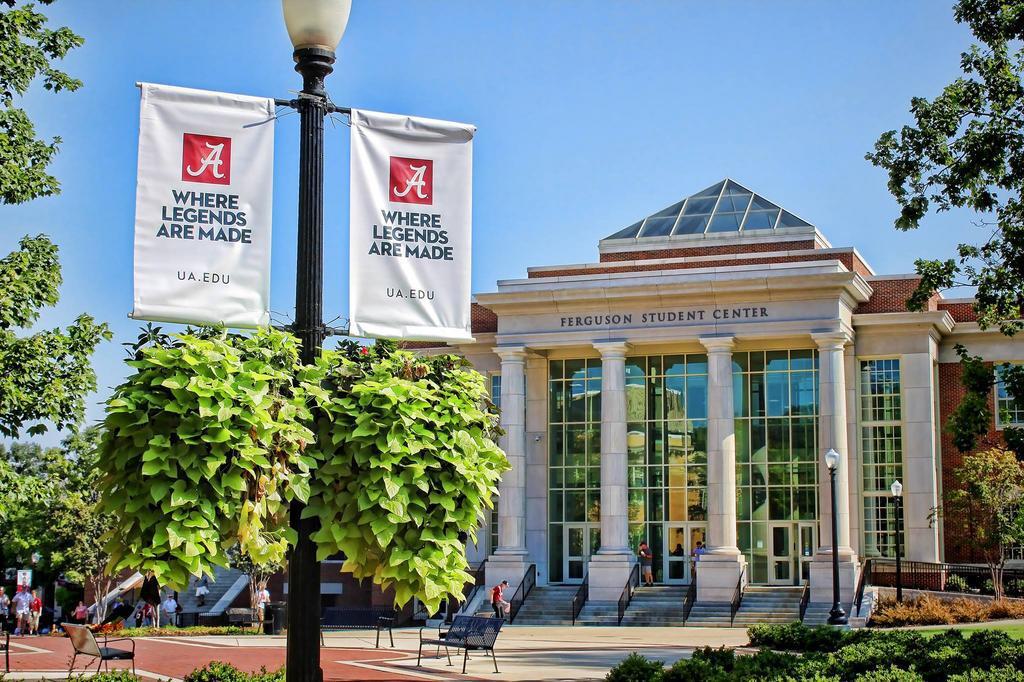On December 6, the eyes of the Republican Party, the national news media and voters across the country will tune in to see prospective GOP presidential nominees take the stage at the University of Alabama’s Moody Music Hall.
With the first primaries of the 2024 election season quickly approaching, the debate at the Capstone promises to be historically significant, but it also represents something that goes to the core of our nation’s foundational principles: the free and open exchange of ideas.
Decades ago, college campuses were known as places where ideas spanning the entirety of the political spectrum could be discussed, expressed and debated without repercussion. Students and professors alike were exposed to new thoughts and ideas that often changed, shaped and molded the way they viewed the world around them. Civil debate was considered healthy, and the thought of students being “triggered” or threatened by ideas with which they disagreed was laughable.
But on many campuses today, discourse and discussion has been replaced with dogmatism and intolerance of anything considered conservative thought.
When conservative author Ann Coulter presented a lecture on the same Berkeley campus where free speech was once celebrated, students rioted at her presence and multiple arrests were made. Violence, riots and arrests have also greeted campus appearances by conservative radio host Ben Shapiro, political commentator Candace Owens and others.
Conservative outbursts against liberal speakers, on the other hand, are as rare as Big Foot sightings.
The recent attacks by Hamas terrorists in Palestine and the military reaction by Israeli forces have inflamed passions on many campuses even more. Rather than rationally debating the various positions on the conflict, too many on the pro-Hamas side have wrongly chosen to target Jewish students with threats and violence that should never be tolerated.
Fortunately, the hue and cry and violent disturbances that have become so commonplace on campuses in other states have been markedly absent from the colleges and universities located in Alabama.
The University of Alabama has been particularly notable in promoting and welcoming appearances by internationally known political figures from both the right and left without suffering the uprisings witnessed elsewhere.
Supreme Court Justice Sonia Sotomayor, an Obama appointee who is known for her unabashedly liberal views and opinions, lectured the students and faculty of the University of Alabama Law School on a variety of topics, including the justices’ ability to vehemently disagree on constitutional and political principles without adversely affecting their working relationships.
Citing the famously close friendship between conservative Justice Antonin Scalia and liberal Justice Ruth Bader Ginsburg, Sotomayor suggested, “The partisanship that has racked our country shows the need for the Court to set an example of how people can disagree passionately but still agreeably.”
On the opposite side of the aisle, the University of Alabama also hosted former Vice President Mike Pence, who addressed hundreds of students, faculty, staff and Tuscaloosa residents without incident. Pence spoke candidly on a number of issues that are prominent in today’s social discussions, including abortion and Second Amendment rights.
In contrast to the University of Alabama is Harvard University, which scored a zero out of 100 in a study by the Foundation for Individual Rights and Expression. Among the many transgressions that landed Harvard at the bottom of the college free speech rankings was sanctioning or firing multiple professors who expressed conservative ideas, disinviting a speaker who held traditional conservative views on transgender issues, and allowing students to disrupt a lecture by occupying the stage and refusing to leave.
I am convinced beyond measure that the University of Alabama’s long history of welcoming personalities on both the right and left and encouraging discussion of ideas that are popular, unpopular and in-between resulted in its selection as the host site for a prestigious presidential debate.
When the Republican candidates take the stage on the University of Alabama campus, they will find themselves standing within a beacon of free speech and honest debate, and they will enjoy a world-class experience mixed with traditional Southern hospitality as the nation watches.
Scott Stadthagen is the state representative for House District 9, which encompasses portions of Morgan County, and serves as majority leader of the 75-member Alabama House Republican Caucus.
The views and opinions expressed here are those of the author and do not necessarily reflect the policy or position of 1819 News. To comment, please send an email with your name and contact information to Commentary@1819news.com.
Don’t miss out! Subscribe to our newsletter and get our top stories every weekday morning.










